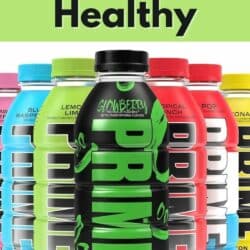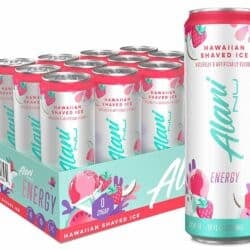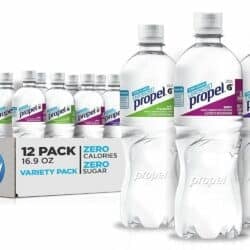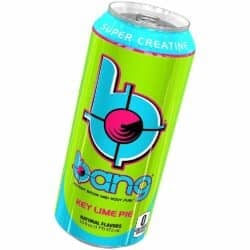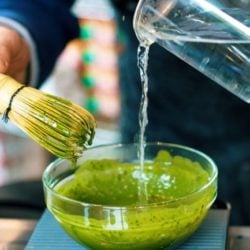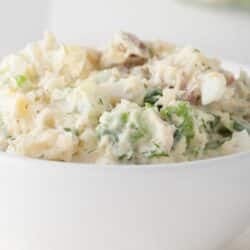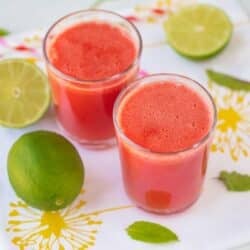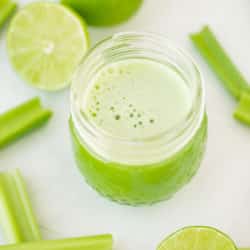Is Prime Drink Healthy (Nutrition Pros and Cons)?
In this blog post, I’ll review the question of whether Prime Drink is healthy or not. Find out what the nutrition pros and cons of this product are, plus some better options to consider. For most people, Prime Drink is not considered at clean eating choice.
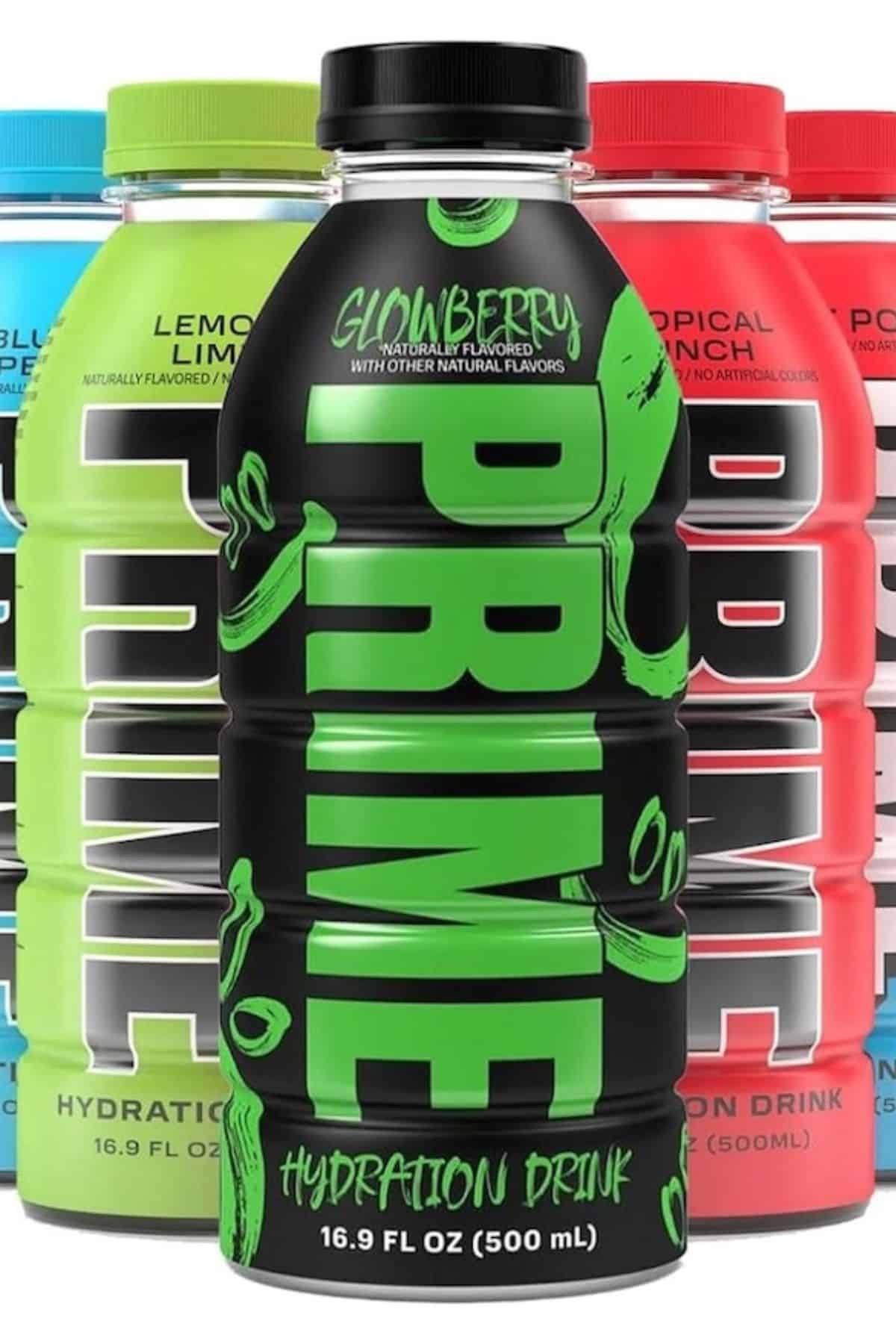
Prime Drink Facts
Prime Drink products are a collaborative creation between Logan Paul and KSI, two boxers who used to be rivals in the ring. The two athletes joined forces to create a range of hydration and energy drinks that help people achieve exercise and fitness goals.
These popular drink products are aimed at active people who need additional hydration or energy.
Prime Drink sports drink products are available in two ranges: one is for hydration, and the other is for providing an energy boost. Both product ranges contain filtered and coconut water from concentrate as the base ingredients.
Flavors range from Blue Raspberry to Tropical Punch, and more.
According to the company, Prime Drink products offer fewer calories than other energy and hydration drinks and are sugar-free.

Prime Drink Ingredients
According to the Prime website, Prime Drink products contain:
- Filtered water
- Coconut water from concentrate
- Citric acid
- Dipotassium phosphate
- Trimagnesium citrate
- Natural flavor
- Sucralose
- Acesulfame potassium
- L-isoleucine
- L-leucine
- L-valine
- D-alpha tocopheryl acetate (Vitamin E)
- Beta carotene
- Retinyl palmitate (Vitamin A)
- Zinc aspartate
- Pyridoxine hydrochloride (Vitamin B6)
- Cyanocobalamin (Vitamin B12)
Some variations also contain calcium lactate, erythritol, potassium sorbate, gum arabic, and ester gum, also known as glycerol ester of rosin. The energy variations contain caffeine.
Here’s more information about the main ingredients in Prime Drink products and the potential impact they may have on your health.
Filtered water and coconut water

Filtered water is excellent for hydration, and coconut water is naturally rich in nutrients, minerals, and electrolytes.
Coconut water has several health benefits, namely, it is high in potassium.
It’s important to note that some people allergic to coconut or tree nuts may suffer adverse effects and should avoid Prime Drink products.
Branch Chain Amino Acids (BCAAs)
The Prime Drink energy range contains the BCAAs L-isoleucine, l-valine, and l-leucine. Your body cannot naturally produce these amino acids – you can only obtain them from your diet or supplementation.
According to manufacturers who add BCAAs to their products, they can help increase muscle growth and maintenance, reduce muscle fatigue and soreness, and improve muscle performance. BCAAs may also support liver health.
Despite these potential benefits, other research has shown that these claims about BCAAs may be inaccurate. Additionally, these ingredients may have adverse effects on your health, including an increased risk of stroke in people with cardiovascular problems.
Another point of interest is that should BCAAs be effective, the content in Prime Drink products is less than 123.9mg, 40 times less than the minimum effective dose.
Non-Nutritive Sweeteners
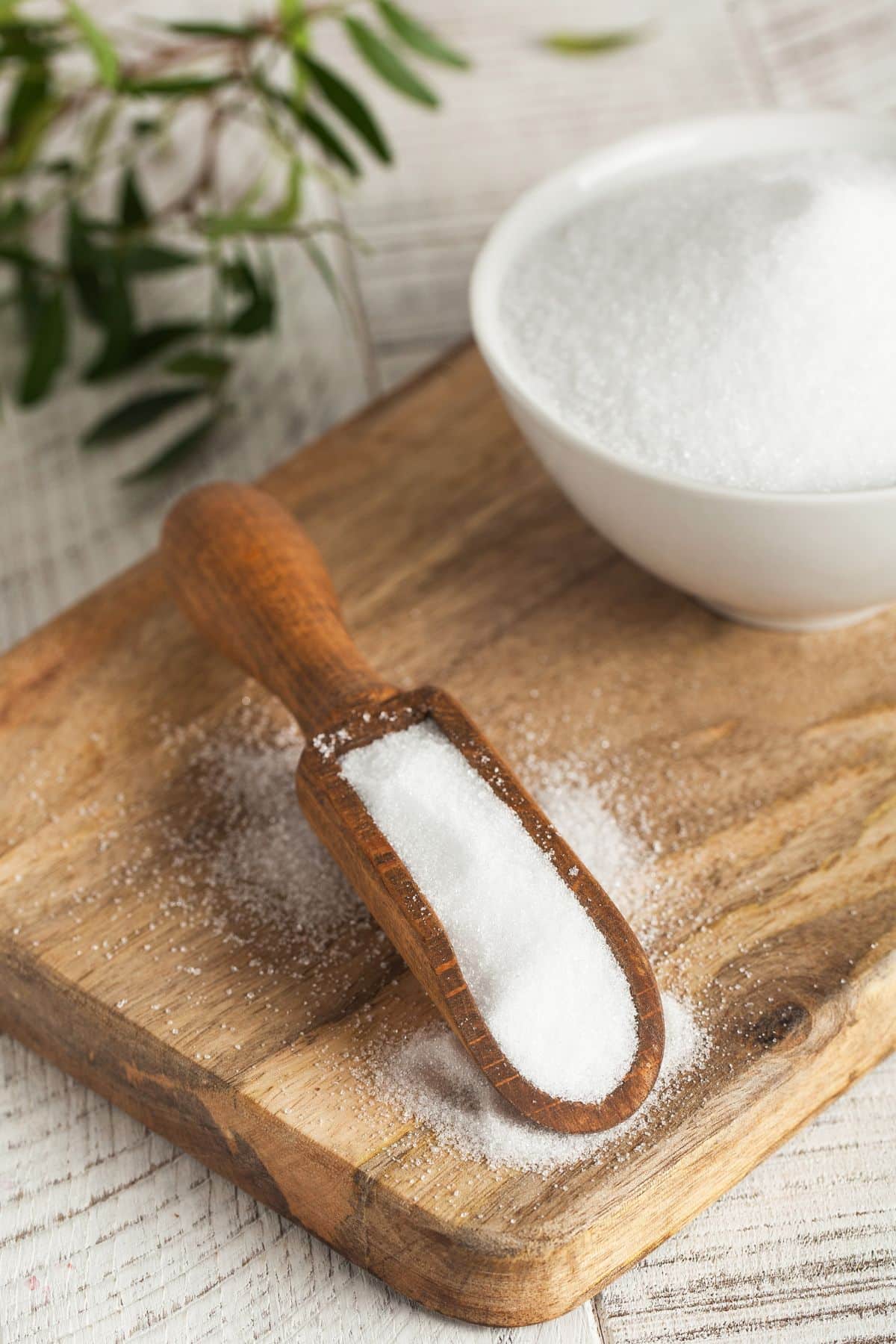
Prime Drink products are sugar-free. However, they are sweetened with sucralose and acesulfame potassium, and some products also contain erythritol. All of these ingredients are non-nutritive sweeteners with potential health risks.
Sucralose is a highly processed product that can adversely affect the gut microbiome and cause inflammation and toxicity. Acesulfame potassium has been implicated in scientific studies as a carcinogen, among other potential health risks.
Erythritol is a by-product of corn fermentation or wheat starch and can cause stomach problems in those sensitive to sugar alcohols.
People following a healthy, clean eating diet may choose to avoid non-nutritive sweeteners. If you decide to include products that contain non-nutritive sweeteners in your diet, it’s best to do so in moderation and avoid using them long-term.
Citric acid
Citric acid is a weak acid naturally contained in citrus fruits. It’s a common ingredient in manufactured drinks because it’s a preservative and provides a refreshing, citrusy flavor.
Although citric acid is not precisely an unhealthy ingredient, it can be corrosive. Too much of it over time can erode tooth enamel on your teeth and cause dental problems.
Ester Gum
This food additive is also known as glycerol ester of rosin. It is manufactured from tree stumps of long-leaf pine trees. Manufacturers add ester gum (E445) to food to thicken and stabilize it.
According to the FDA, it’s a safe additive. However, research suggests that it may have toxic effects and that further research is required.
Caffeine

The energy range of Prime Drinks contains 200 mg of caffeine per 12 oz. serving. Caffeine is a natural stimulant with many health properties.
When adults who are not pregnant or nursing consume caffeine in moderation, it can protect them from DNA damage, reduce their risk of certain cancers, and help prevent heart failure, Parkinson’s, and Alzheimer’s.
Since the recommended maximum daily dosage of caffeine is 400mg, it’s essential to stick to a maximum of one or two servings of Prime Energy Drink per day and limit other caffeine sources to your diet to ensure you don’t consume more than 400 milligrams of caffeine in total.
It’s also important to note that caffeine is a stimulant, even if it’s natural. Children should steer clear of it completely, and adults should limit it. Too much caffeine consumption can cause jitters, anxiety, dehydration, increased blood pressure, headaches, and vomiting.
Nutrition Pros
The Prime Hydration Drink product works for hydration, and it is sugar-free, gluten-free, and vegan-friendly with no added sugar. The “hydration range” of Prime Drink is caffeine-free and only contains 25 calories per 500ml serving.
The “energy range” of Prime Drink only has 10 calories and also contains added electrolytes.
Nutrition Cons
Prime Drink products are highly processed, and some are served in plastic bottles that are not environmentally friendly.
All the drinks contain chemical and potentially unhealthy ingredients like non-nutritive sweeteners, preservatives, and other processed ingredients that can cause digestive problems and other health issues.
Some people can also be sensitive to b vitamins and other ingredients in these popular drinks.
People who are following a clean eating diet should avoid this product. The Prime Drink energy variations are not suitable for pregnant and nursing women, children, or people who are sensitive to caffeine, such as those with irregular heartbeat or heart palpitations.
If you choose to have this product, do so in moderation. Two servings are the maximum recommended daily allowance for caffeine, so if you have anything else that contains caffeine, it will be too much.
Nutritioon FAQs
Yes, Prime Drink products are highly processed with ingredients that can cause digestive issues in some people. These unhealthy ingredients may also affect your long-term health.
The energy range of Prime Drink products contains 200mg of caffeine per 12 oz. serving. If you are sensitive to caffeine or have too much of it, you may experience anxiety, jitters, insomnia, elevated heart rate, and other caffeine-related side effects.
It’s unclear whether people with diabetes or other dietary restrictions related to health concerns can safely drink Prime Drink products. Although sugar-free, these products contain other ingredients that may adversely affect blood sugar.
Prime Drink products are vegan and gluten-free but are not suitable for people who follow a clean eating diet because they contain highly processed or chemical ingredients. If you have health concerns and want to consume Prime Drink products, it’s best to check with your doctor if it’s okay before adding it to your diet.
According to the company website, the Prime Drink hydration products are low in calories and sugar-free. Some other brands of bottled water contain sugar. Another difference is the taste. According to the company, many hydration drinks that contain electrolytes taste a little salty, but Prime Drink flavors counteract this.
The Prime Products energy range is unsuitable for young children because it contains a high caffeine content. Furthermore, you should exercise caution if you consider giving your child a drink from the Prime Products hydration range.
Although it may not have an immediate adverse effect on your kid’s health, this popular sports drink also contains chemicals and artificial sweeteners that may cause adverse health effects.
More Energy Drink Reviews You Might Like
Conclusions
Prime Drink products are sugar-free and are hydrating. However, they contain several highly processed or chemical ingredients like non-nutritive sweeteners. Although occasionally having a Prime Drink may not affect your health immediately, it’s best to avoid consuming them regularly or in high quantities.
Prime Drink energy products are not suitable for children or pregnant or nursing women because of their caffeine content. Health-conscious people may choose to avoid Prime Drink products altogether.
Don’t forget to join my newsletter list to get exclusive clean eating recipes and tips. The newsletter is 100% free with no spam; unsubscribe anytime.
About the Author: Carrie Forrest has a master’s degree in public health with a specialty in nutrition. She is a top wellness and food blogger with over 5 million annual visitors to her site. Carrie has an incredible story of recovery from chronic illness and is passionate about helping other women transform their health. Send Carrie a message through her contact form.
Note: this post is for informational purposes only and is not intended as medical advice. Please consult your healthcare provider for recommendations related to your individual situation.


